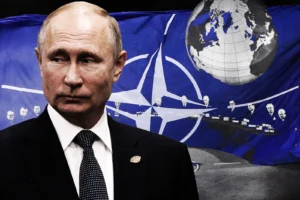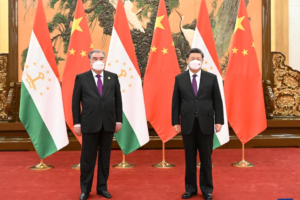Three weeks ago, the teaser for Kaathal: The Core, a Malayalam-language film starring Indian actor Mammootty, dropped on YouTube.
It revealed little about the film’s main conflict but sparked discussions in the southern state of Kerala, the film’s home state. A superstar portraying a gay character became the buzz among fans, critics, and commentators.
No Indian star with a legacy spanning half a century and three National Film Awards, and a massive fan following, had taken on such a role.
Directed by Jeo Baby, known for the 2021 hit The Great Indian Kitchen addressing patriarchy, Kaathal quickly ignited conversations among his fans and followers.
The film tells the story of a closeted gay man in a heterosexual marriage. As Mathew (played by Mammootty) prepares to contest a local election, his wife Omana (played by Jyothika) files for divorce, alleging her husband is gay. The film explores the ripple effects the case has in their family and community.
“I wanted to make this film about living together with the LGBTQ community and how this works within our families,” Baby told the BBC.
The film demanded the performance of a talented actor like Mammootty, who also produced it, he says. “He understood the film immediately and was willing to do it.”
The reviews have been overwhelmingly positive, and shows sold out throughout Kerala.
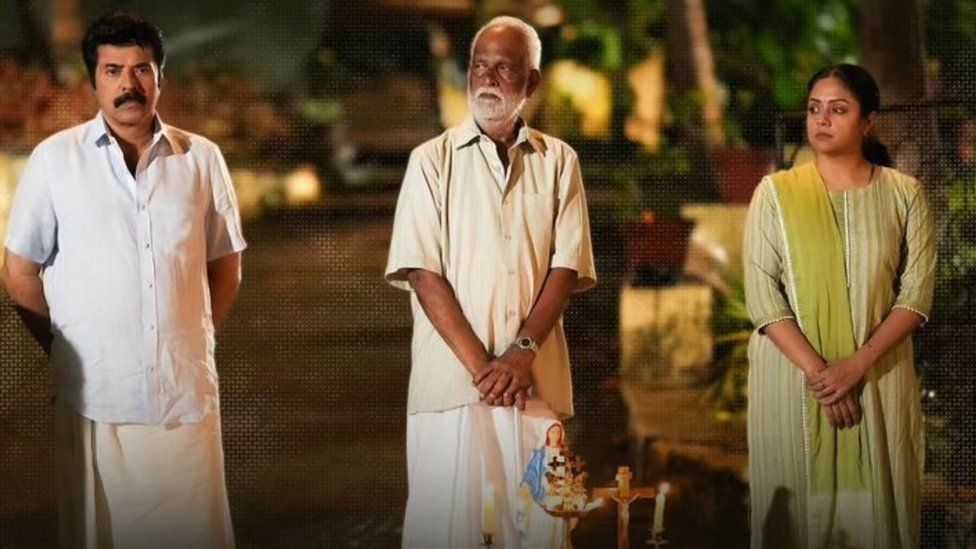
But social media posts of Kaathal’s posters and trailer, including those shared on Mammootty’s accounts, also invited comments by anti-LGBT groups asking people to boycott the film and criticising the actor for his role. Muslim clerics criticised its representation of homosexuality, saying it would “brainwash the youth”.
Such a backlash would not be unexpected for the makers and for Mammootty, says Athul PV, an organiser of the Kerala Queer Pride.
“He’s an actor that people admire a lot, so when he plays this character it makes you think how much thought he put into picking this role and making the film,” Athul says.
Many in the state’s LGBTQ community embraced the film’s “sensitive” portrayal of a married gay man’s experience.
“The film is not above criticism but it’s a daring attempt,” says Prijith PK, founder of Queerythm, a community-based organisation.
Despite being a state with high development indicators and the highest literacy rate in India, Kerala still remains patriarchal and conservative in many areas.
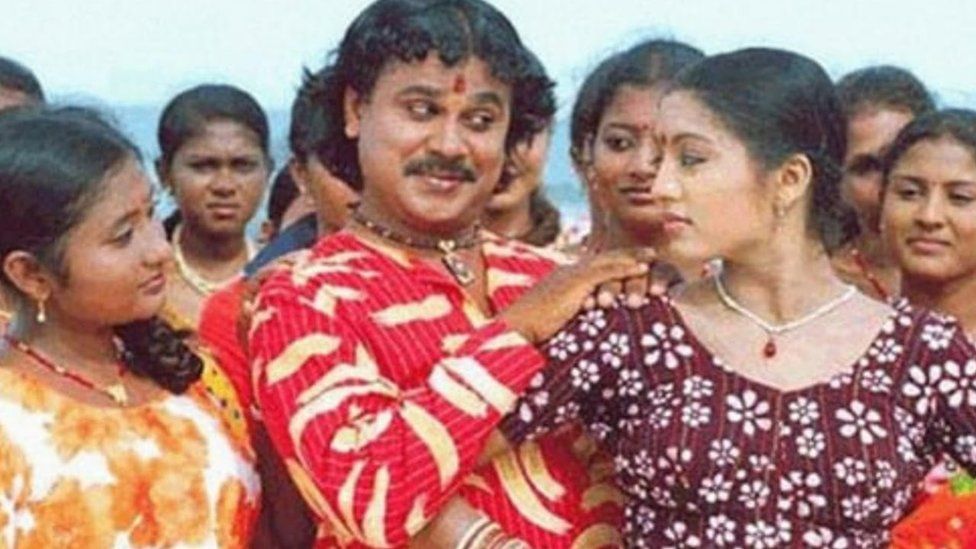
The state is well-known for its vibrant film industry and hosts an annual film festival that attracts worldwide audiences.
However, Roshni Prabhakaran, an academic who has worked on gender representations in films, notes a scarcity of “sensitive films depicting the LGBTQ community”.
Although Malayalam cinema has had queer-coded characters from the 1970s, one of the first mainstream portrayals was in the 2005 film Chanthupottu.
The film depicts the story of an effeminate man who eventually adopts more masculine traits. It faced sharp criticism from activists and members of Kerala’s LGBTQ community for spreading dangerous misconceptions, even as its filmmaker denied that the character was gay. Activists said the film’s title was a term often used to insult transgender persons – chanthupottu literally means a red bindi, a bright dot applied in the centre of the forehead.
“Chanthupottu’s impact was entirely negative,” says Athul. “It left behind the idea that this is what queer people are like.”
In recent years, well-known Kerala film stars have played gay characters on screen.
Nivin Pauly’s 2019 film Moothon garnered attention at film festivals but struggled to connect with the broader audience, says Prof Prabhakaran. On the other hand, Prithviraj Sukumaran’s 2013 film Mumbai Police, despite its mainstream appeal with a star lead, faced criticism for its “problematic representation, with a focus on shame and homophobia”.
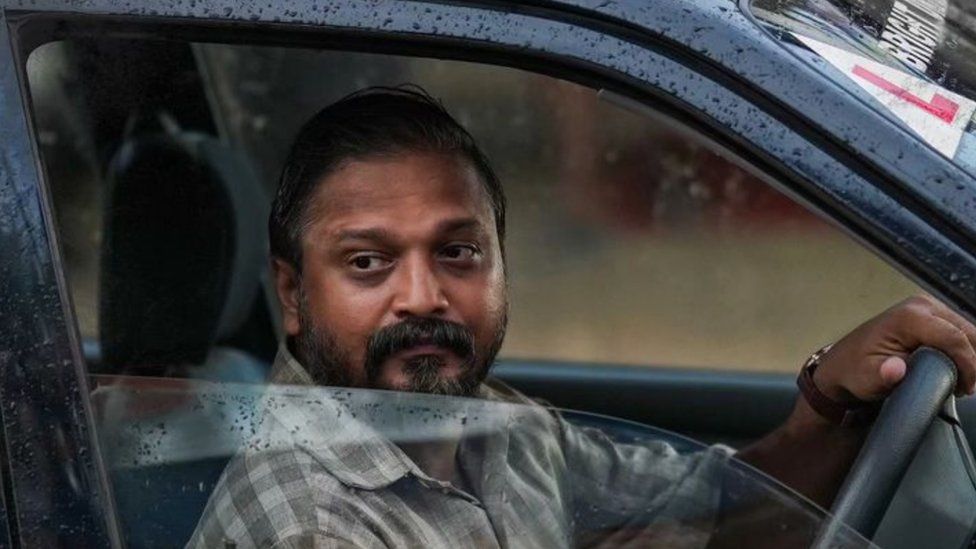
In that sense, Kaathal is entirely different, say many. “We’ve not seen this difficult phase – of a closeted man coming out of a heterosexual marriage – in Malayalam cinema,” says Prof Prabhakaran.
Gay men who’ve watched Kaathal say it’s clear the film was made with the involvement of the community.
The film is not “queerphobic” in the way most mainstream films with the LGBTQ community representation are, says Prijith, who works as a diversity and inclusion manager at the Kerala Knowledge Economy Mission.
“Kaathal is almost like an apology for the history of queer indignity and misrepresentation in Malayalam films.”
Mammootty’s commanding presence influences both the film and its reception. Despite the actor’s reputation for infusing his characters with gravitas and depth, his filmography also has its fair share of regressive ideas and misogyny.
In 2016, the actor was pulled up by the state’s women’s commission for his film Kasaba and its dialogues that “insulted women”. The commission said the delivery of “sub-standard dialogues” by an actor like Mammootty could lead to a “dangerous acceptance” of such behaviour by the public.
“With Kaathal, it’s almost like he’s himself undoing the hyper-masculine, powerful, arrogant on-screen persona we’ve seen in his films so far,” Prijith says.
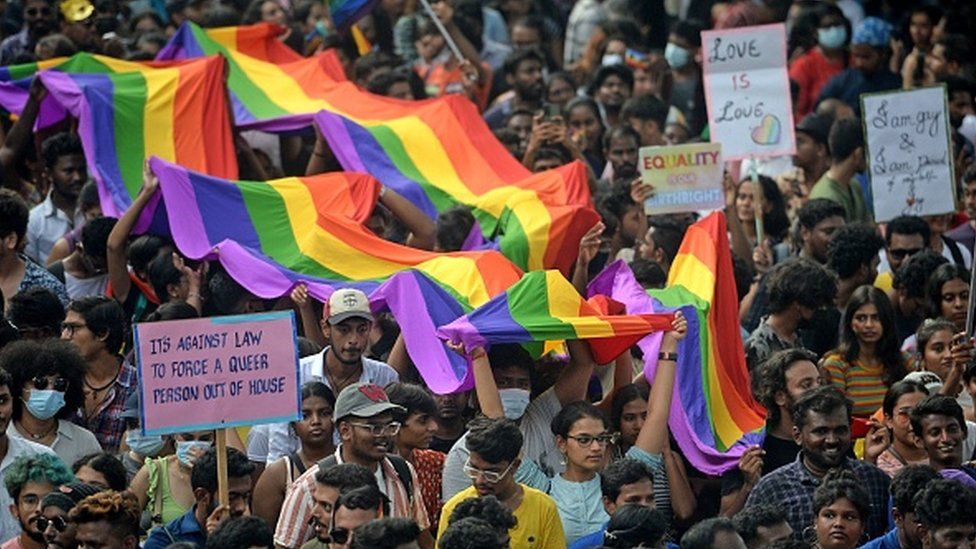
In recent years, Mammootty has been looking to shore up his legacy by producing films under his banner and experimenting with ideas outside the limits of commercial success.
“Every new film [in Malayalam] is an experiment driven by the interests of the audience in new actors, new subjects and new films,” he said in a recent interview.
“I think this is the main reason why the Indian film industry looks to Malayalam cinema. Naturally, I also want my films to be a part of this journey.”
Kaathal tells the story of “many men in our society,” Prijith says.
“The film shows these are people in our own homes.”
Source : BBC








